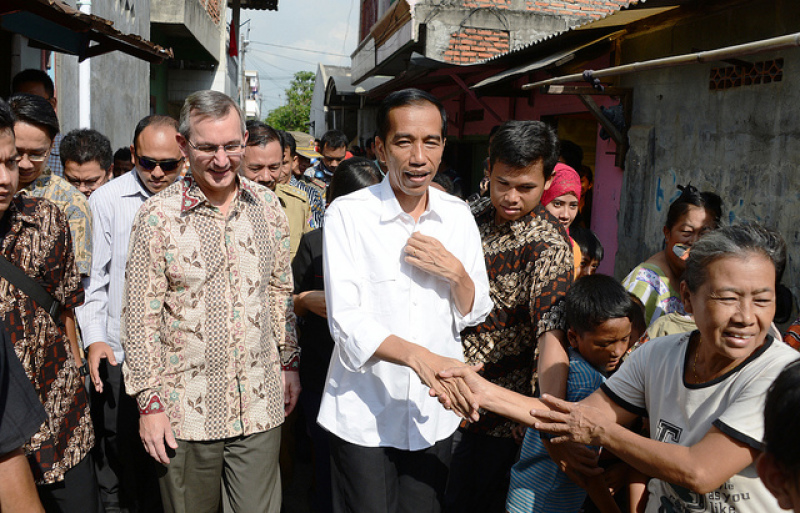
A new report released by World Evangelical Alliance said that not enough has been done in Indonesia to curb persecution of religious minorities at the hands of Islamic radicals.
The WEA religious Liberty Commission Research notes that that government's efforts to protect religious freedom are not effective, and that there has been a conspicuous neglect of rule of law.
In two highly publicized cases, the Muslim fundamentalists challenged the legal status of GKI Yasmin church and HKBP Filadelfia. However, the Supreme Court said that they are legal, and permitted them to reopen, but the local mayors continue to defy orders and are not letting the churches operate, because of threats from radicals.
Religious activist organizations are raising questions as to why President Joko Widodo has not enforced the Court's order or taken action against the mayors who are not abiding by the country's highest judicial authority.
The WEA report further said that Widodo's measures are too lukewarm to rein in extremists' threats to the minorities.
"[President Widodo] does seem to have the will, as he recognizes that religious extremism is a serious issue, unlike his predecessor Susilo Bangbang Yudhoyono, who neither acknowledged nor did anything to control the growth of extremist groups," the report states.
The report further says that the president "seems to be working towards making the Indonesian society more tolerant, which, of course, is remarkable, but his efforts are not accompanied by strengthening of the rule of law."
"Since the beginning of his presidency, Jokowi has been implementing a cautious bottom-up strategy, which is needed to promote tolerance and moderation, while avoiding a direct confrontation with extremist groups," the report continues. "This perhaps explains why he has not been taking enough top-down measures required to improve law and order. And extremist groups seem to have little fear of action by the government yet."
Last month, while speaking at Nahdlatul Ulama (NU) gathering, Widodo said that Islamic militants have targeted Christians, and other Muslim groups such as Shiite and Ahmadiyya, by murdering and threatening people, and vandalizing and burning down places of worship.
Since 2007, about 200 churches were razed by the extremists. Radicals not only use violence to suppress religious freedom in Indonesia, but they also manipulate the legal system to silence the voice of freedom. The government's 2008 ministerial decree imposed heavy regulations on the construction of churches.
One of the new regulations is that an application for construction of a church must have 60 signatures from Muslims, and approval from a local leader to begin work on the building.
The legal restrictions make Christians feel persecuted. Even though the courts rule in favor of Christians, local appointed leaders fail to implement the orders because of their religious prejudice and threats from radicals.
The WEA report says that the country needs to control the law and order situation, and that, "every incident of blocking of worship services, violent attacks, and closure of churches is a blatant violation of law."
In 2011, GKI Yasmin held its service outside on the street as the church building was forcibly closed, while a mob of extremists carried out angry protests against the Christian congregation.
The HKBP Filadelfia was openly harassed in 2012, as an Islamist mob threw urine, sewage and frogs at people attending the service. The persecution of the church continues even after a local court ruled that the church's right to open was valid.
This year, the Yasmin attendants plan to hold its 100th service outside the Widodo's office palace to peacefully protest the illegal closing of their church.


















